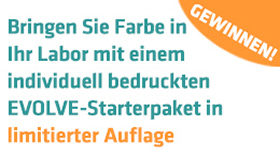Science and Society in Horizon 2020 and Beyond
Career strategies for young European scientists
by Ralf Schreck, Labtimes 01/2015
Page 1 | Page 2 | Page 3
The idea of supporting the best science for the world and not that in the world has become popular. Science-society issues have also gained momentum in the ongoing EU Framework Programme, Horizon 2020. Participating scientists and their institutions are faced with new challenges, including modified rules for publication and data sharing.
European Framework Programmes for Research and Technological Development were launched about 30 years ago. Approximately €80 billion have been earmarked in the current eighth consecutive programme (2014-2020) for all sorts of research, development and innovation, with the ultimate goal of increasing the economic competitiveness of the European Research Area. Horizon 2020’s three main funding pillars are scientific excellence, industrial leadership and societal challenges. In addition, there are smaller programmes, such as Science with and for Society whose mission it is to bridge the gap between the scientific community and society.
But societal topics are not confined to EU research agendas and academic discourse. In Horizon 2020, they have arrived at the level of the individual research project and the scientist involved. For example, requirements for compliance with ethical standards, or for sharing publications and research data, must either be compulsorily addressed or on an optional basis for the time being. In some funding programmes, new criteria such as gender balance have been included as ranking factors for applications, receiving the same score during evaluation. Moreover, scientists must now justify their research proposal by estimating its economic impact and societal benefit, in addition to its scientific value and European added value. Responsible research, open access, Science 2.0 and citizen science are just a few recent concepts, which are becoming increasingly relevant not only in the context of EU programmes, but may also influence the way science is funded at the national level in the future. Here, Lab Times will provide some insights into recent developments, with a focus on open access in Horizon 2020 and beyond.
|
Maria Leptin, EMBO Director, Heidelberg, Germany: “Data are indeed an essential component of publications. In our view, an important element of the open sharing of research is unrestricted access (which means Open Access with a license that does not impose undue restrictions) to the data published in papers with sufficient context to allow use and reuse of this data. With its SourceData project, EMBO is currently developing editorial tools to make this vision possible. Open access to data in research papers can be achieved without necessarily converting the journal to OA.”
|
Humble beginnings
The promotion of research and innovation in order to create new knowledge, technologies and products has always been at the core of the EU Framework Programmes (FP). As well as research, addressing the scientific outcome and broader impact of EU-supported projects and programmes has gained importance over the years. More emphasis has also been gradually placed on research and additional activities, targeting legal, ethical and societal issues associated with science and technology. The funding of small-scale pilot projects, including technology assessment and foresight studies, but also larger programmes, were to some extent motivated by novel emerging technologies and their applications (such as, for example, genetic engineering in the past and, more recently, nanotechnology and geoengineering), or by disease outbreaks and environmental catastrophes.
In the late 1980s, intensifying communication with the public and getting to know the public’s opinion on and knowledge of science and technology were on the EU agenda. In the 90s, the policy focus shifted slowly towards the integration of social and ethical aspects of science and engineering research, for example, by using the Targeting Socio-Economic Research FP4 programme. To improve the understanding of the benefits and limitations of scientific and technological research by the general public, programmes such as the FP5 Raising Awareness Programme were launched, aimed at sensitising scientists to matters of concern to the public.
Societal issues pick up speed & Euros
The Commission working paper Science, Society and the Citizen in Europe, published in 2000, was a key document that culminated in the first Science and Society Action plan of the European Commission. Subsequently, new concepts promoting dialogue and participation were put forward in FP6 (2002-2007), for example, by the €80 million Science and Society programme and the €225 million Citizen and Governance in Knowledge-based Society programme.
The shift from Science and Society to Science in Society was made in FP7 (2007-2013) to stress that both areas are not separate entities but highly interconnected. The €330 million programme enabled hundreds of research, coordination and support actions as well as initiatives, conferences, seminars and expert groups. In a recent presentation by the DG RTD B7, the Unit of the Directorate-General for Research and Innovation in charge of science and society issues at the European Commission, three main outcomes of previously funded science-society projects were emphasised. First, good marketing alone is no longer sufficient to gain public acceptance of technology. Second, the key to innovation adequacy and acceptability is the early and continuous engagement of the public. Finally, to achieve greater creativity and to promote better results in the whole research process, diversity at all levels and in all aspects of the research process has become a must. The interested reader may find further details in the policy briefing Science in Society: caring for our futures in turbulent times published by the European Science Foundation in 2013 and in a very recent review by the National Research Council of Italy on the main priorities and achievements of science-society activities funded in FP6 and FP7.
Science at the service of society?
Societal challenges, with their assignment to push research and innovation for the society’s benefit, has become one of three major funding priorities in Horizon 2020. Roughly 40% of the whole FP budget is earmarked for seven topics, which have been identified as key societal challenges in the Europe 2020 strategy for smart, sustainable and inclusive growth. They include, for example, health, food security, clean and efficient energy, resource efficiency and raw materials, and will be tackled by research and innovation activities, bringing together different disciplines, technologies and actors.
Social sciences and humanities research were stressed as important elements in these efforts, mainly to counteract continuing criticism of being largely underrepresented with respect to funding opportunities and research budgets. Research and innovation activities are accompanied by the €500 million Science with and for Society programme (SWAFS), which was not holed up beneath major funding lines as previously, but was implemented as an independent and clearly visible element. According to the work programme, the aim of SWAFS is to build an effective cooperation between science and society, to recruit new talents for science and to pair scientific excellence with social awareness and responsibility. For the first time in the history of EU programmes, research and innovation to society’s benefit and activities bridging the gap between science and society have been positioned prominently. Whether this was just a clever move to justify an increased budget for Horizon 2020 in times of economic turbulence or indeed a strong commitment that will not soon be abandoned for the sake of economic impact remains to be seen.
SWAFS funding announcements, with deadlines in September 2015, will fall within the following four broad thematic topics: Integrating society in science and innovation (ISSI), making science education and careers attractive for young people (SEAC), promoting gender equality in research and innovation (GERI) and developing governance for the advancement of responsible research and innovation (GARRI). All proposals have to take up and support the new Responsible Research and Innovation (RRI) approach in Horizon 2020, which will be explained in detail below.
Whereas in the past the results of science-society programmes often went unnoticed by the greater scientific community and public, more emphasis has been placed in Horizon 2020 on dissemination beyond a closing expert-level conference, a major publication or website that will eventually become outdated. In order to receive financial support, applications in the programme have not only to give proof of their innovative character but also of their social, economic and environmental sustainability beyond the funding period. The topic of Science within and for the Society has definitely drawn considerable attention within the scientific community and beyond. This is evident, for example, from the number of proposals in the first calls for Horizon 2020 and from the crowd of 600 attendees in the booked-up international conference on ‘Science, Innovation and Society: Achieving Responsible Research and Innovation’ in Rome last November.
|
Jack Stilgoe, Department of Science and Technology Studies, University College of London: “Under Horizon 2020, there will certainly be growing support for open access. But open science does not only speed up research and innovation, it brings new responsibilities, too. It questions the boundaries that separate science from the rest of society. I think we underestimate how difficult will be the vital task of turning open science into responsible science.”
|
Responsible research and innovation
The concept of responsibility in science is nothing new. Its meaning extends beyond pure research ethics and varies widely, for example between scientific disciplines such as biomedicine or physics and research topics under consideration, such as genetically modified crops, nuclear energy and IT security.
Various definitions of RRI have been put forward recently, for instance by a group of scientists in the UK consisting of Jack Stilgoe, Richard Owen and Phil Macnaghten, by the Dutch agricultural scientist and philosopher René von Schomberg, working for the European Commission on research and innovation policies, and by the European Commission itself. The UK scientists described the four dimensions of RRI: anticipation in governance, reflexivity by actors and institutions, inclusion of new voices and responsiveness in the innovation systems. Von Schomberg defined RRI in his article A vision of Responsible Research and Innovation as a “transparent, interactive process by which societal actors and innovators become mutually responsive to each other with a view to the (ethical) acceptability, sustainability and societal desirability of the innovation process and its marketable products in order to allow a proper embedding of scientific and technological advances in our society.”
In the EU context, Responsible Research and Innovation (RRI) surfaced during the programming period of Horizon 2020, towards the end of FP7, as a compromise between economic and societal aspects of research and innovation. RRI has been implemented as a cross-cutting issue with relevance for all three major funding areas of Horizon 2020, and should be taken into consideration and promoted throughout the whole FP.
The European Commission settled on six RRI key elements in 2012: 1) open access to the results of publicly-funded research for all societal actors to increase their impact and to make research and innovation more transparent, 2) ethics as a way of ensuring high quality results and increased acceptability of research and innovation, 3) gender equality in the context of research and innovation, 4) science education to bring more talent into research and to create a science-literate society, 5) engagement of all societal actors and their participation in the research and innovation process and, finally, 6) governance as a tool to implement the five previous keys and to prevent harmful and unethical developments in research and innovation.
One might argue that RRI is just an omnium gatherum of the European Commission to gain acceptance for a bundle of highly diverse topics, which are directly or indirectly linked to research and innovation but do not have too much in common and have been widely addressed before. The rest of this article will be confined to the RRI key element of open access and how it is put into practice in Horizon 2020.
The practice of providing online access to scientific information that is free of charge to any end-user and is re-usable is a brief definition of open access. The European Commission reasoned a couple of years ago that “information already paid for by the public purse should not be paid for again each time it is accessed or used, and that it should benefit European companies and citizens to the full”. Open access was put forward as a way to optimise the impact of publicly-funded research. This should be translated into action, for example, by incorporation of scientific information and knowledge gained in the past into new research projects, thereby promoting the re-use of scientific information, avoiding duplication of efforts, creating transparency and fostering scientific collaboration.
Page 1 | Page 2 | Page 3
Last Changed: 14.02.2015









